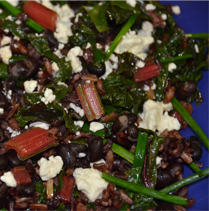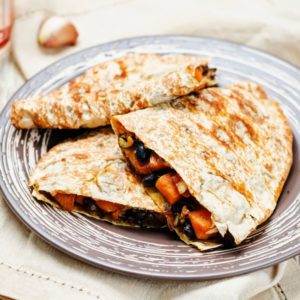
What are the differences between Celiac Disease and Gluten Intolerance? Get simple facts to understand how gluten may or may not fit into your child’s diet.
Celiac Disease, or gluten intolerance, is becoming increasingly common today. In the United States, more than 2 million people or 1 in every 133 people are affected by this disease. The risk increases to 1 in every 22 people if you have a parent, child or sibling with the disease.
What is Celiac Disease?
Celiac Disease (CD), also called Celiac Sprue or Gluten-Sensitive Enteropathy, is not an allergy, but an autoimmune disorder that can cause inflammation of the small intestine. People with Celiac Disease, or gluten intolerance, may experience diarrhea, abdominal pain, bloating, failure to gain weight, or poor nutrient absorption after eating a food that contains gluten, the protein commonly found in wheat, rye and barley. In Celiac Disease, the immune system reacts to gluten by destroying the villi of the intestines, which are responsible for absorbing the nutrients from our food into our bloodstream. Once these villi are destroyed, nutrients can no longer be absorbed properly, regardless of the amount of food eaten. This situation will eventually lead to malnutrition and can make a person very sick, which is why it is so important for a person with this disease to take meticulous care to avoid all gluten.
What are common symptoms of Celiac Disease?
Unlike a wheat allergy, a person with CD may not lose their sensitivity to gluten and will need to avoid gluten for the rest of his or her life. The disease is genetic, so if a parent has Celiac Disease, it is more likely that their children may be affected as well. Digestive symptoms are more common in children and include the following:
- Abdominal pain and bloating
- Constipation or chronic diarrhea
- Vomiting
- Weight loss
- Foul-smelling, pale, or fatty stools
- Irritability
- Failure to thrive in babies
- Delayed onset of puberty
- Delayed growth
What are common symptoms for adults with Celiac Disease?
Adults are less likely to have digestive symptoms and may have a range of symptoms including, but not limited to, fatigue, arthritis, depression, bone or joint pain, and other long-term complications such as anemia or osteoporosis, depending on how long the disease goes undiagnosed. It is also believed that Celiac Disease may be linked to other autoimmune diseases such as Type I Diabetes and Rheumatoid Arthritis.
Can someone with Celiac Disease eat food containing gluten?
Therefore, it is imperative that those with Celiac Disease strictly avoid gluten in all forms. Check out Avoiding Wheat is No Easy Feat for a list of food items that may contain hidden gluten, tips for living with a gluten intolerance, and tips for substituting gluten in your diet.
Some people with Celiac Disease must also avoid non-food products that contain gluten such as lip balm, lotions, and soaps. Though more and more products are being specifically labeled as “gluten-free” it is still important to read labels very carefully.












